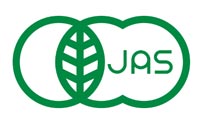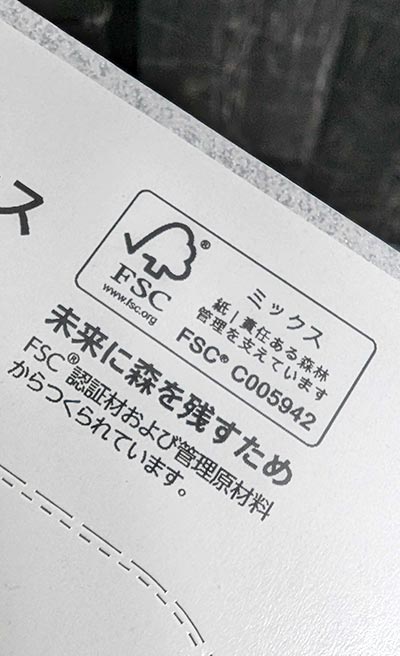Exciting world of eco-friendly
Understanding Eco-Labels and Certifications in Japan
An essential part of sustainable travel is recognizing eco-labels and certifications that indicate environmentally friendly products and services. Gotta know what is ethical before you buy, right?
Thanks to Japan’s Green Purchasing Law, it helps consumers identify eco-friendly products in Japan. The problem is the number of labels! But it’s not quite “labelling hell,” as we’ll help you identify some of the key labels to look out for when you make purchases in Japan.

Everyone’s responsibility
Japan’s Green Purchasing Law
The Green Purchasing Law was established in May 2000 under the “Basic Law for Establishing a Recycling-Based Society.” It aims to create a sustainable society by promoting eco-friendly purchases not only among individual consumers but also government organizations and local authorities.
The law encourages environmentally conscious purchasing to reduce the overall environmental burden. National and local governments are required to lead by example by procuring products and services with minimal environmental impact, supporting eco-friendly consumption through the dissemination of clear information.
Companies must also provide accurate and accessible environmental information, ensuring consumers can easily identify eco-friendly products. The Green Purchasing Law outlines the roles and responsibilities of the government, businesses, local authorities, and citizens to achieve a more sustainable society.
Government agencies
Government agencies must prioritize the procurement of eco-friendly products and services. Each year, the government develops a procurement policy to guide these efforts, aiming to lead by example and promote sustainable practices throughout society.
Businesses
Businesses are required to provide transparent environmental information about their products to support eco-friendly consumer choices. This includes details on product manufacturing processes and efforts to reduce environmental impact. Labels such as “Eco Mark” and “FSC” are commonly used to convey this information clearly.
Local authorities and citizens
Local authorities, like the national government, are encouraged to establish procurement policies that prioritize environmentally friendly products. Similarly, citizens are encouraged to consider the environmental impact when making purchases, helping to reduce the environmental burden on both a regional and individual level.
From organic agriculture to marine life
A few Japanese eco-labels to know
Eco Mark
The Eco Mark is Japan’s official Type I environmental label (under International Organization for Standardization (ISO)), certified by the Japan Environment Association. It is awarded to products and services that have reduced environmental impact throughout their life cycle, from production to disposal. You might find this label on household items, stationery, and services that prioritize sustainability.

Organic JAS Mark
The Organic JAS Mark is used for agricultural products that meet the Japanese Agricultural Standards for organic farming. This certification ensures that products are grown without synthetic pesticides or fertilizers. Look for this label on organic fruits, vegetables, and processed foods.

SuMPO EPD
Formerly known as the EcoLeaf Environmental Label, the SuMPO EPD (Environmental Product Declaration) provides quantitative environmental data based on a life cycle assessment of products. This program offers transparency regarding a product’s environmental impact, helping consumers make informed decisions. It is commonly found on electronic goods and appliances.

Forest Stewardship Council Certification
The Forest Stewardship Council Certification (FSC) indicates that a product is made from responsibly managed forests that provide environmental, social, and economic benefits. This label helps consumers make choices that contribute to forest conservation and the welfare of communities and wildlife.

Marine Stewardship Council Certification
The Marine Stewardship Council Certification (MSC) is an eco-certification for seafood products that meet sustainable fishing standards. It ensures that the seafood comes from fisheries that are responsibly managed, safeguarding marine environments and protecting the livelihoods of fishing communities.

Aquaculture Stewardship Council Certification
The Aquaculture Stewardship Council Certification (ASC) marks responsibly farmed seafood. Unlike the MSC (Marine Stewardship Council) label, which applies to wild-caught seafood, the ASC Label focuses on aquaculture, ensuring that fish farms operate with minimal environmental and social impact. This includes maintaining water quality, protecting wildlife, and ensuring fair treatment for workers. (So, both MSC and ASC ensure sustainable seafood but apply to different types of seafood sources.)

Energy-Saving Label
The Energy-Saving Label is used in Japan to indicate the energy efficiency of home appliances and electronics. This label helps consumers compare the energy usage of different products and encourages the selection of appliances that use less energy, thereby reducing carbon footprints and promoting energy conservation.

Biomass Mark
The Biomass Mark is used to certify products that are made from biomass materials, which are renewable organic resources such as plants and other biological matter. This label indicates that a product helps reduce reliance on fossil fuels and supports a circular economy. The use of biomass contributes to lowering greenhouse gas emissions and promoting sustainable resource management.



